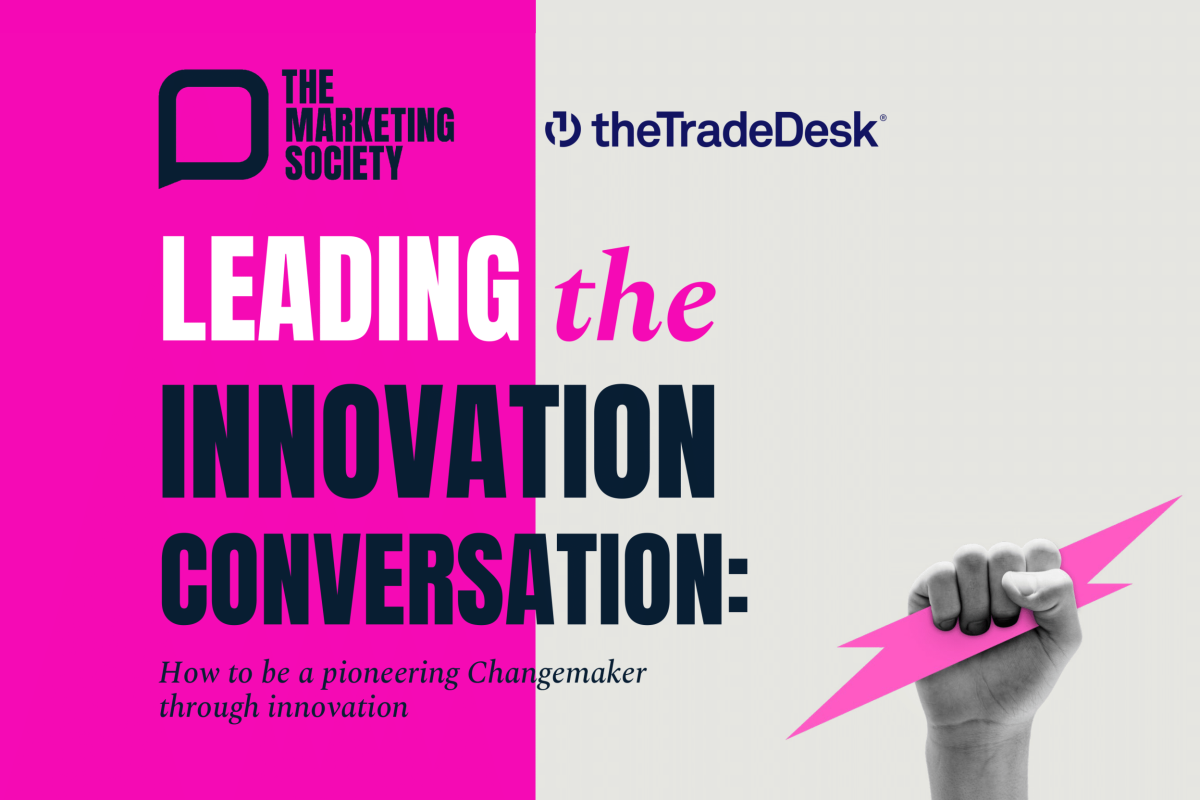We are delighted to partner with global advertising technology leader The Trade Desk on an important new report exploring the evolving priorities and collective perspectives on marketing innovation.
We spoke to five leading CMOs from across the UAE region collating their insights, perspectives on this topic. The resulting report offers a unique window into how successful organisations are balancing the day-to-day demands with game-changing innovation. Their collective experiences offer practical guidance for turning bold thinking into measurable results. Meet our contributors later in this post.
Leading the Innovation Conversation
We asked our expert to discuss five topics:
- Where does marketing sit within innovation?
- How do you instil a culture of innovation in your team?
- How much time and resource should a business spend on innovation?
- What innovations are sparking your interest for the future?
- The future of marketing. Where do you see the future of the industry?
Here’s what we learned:
Innovation Approaches Vary by Industry
Perhaps unsurprisingly organisations take different approaches based on their industry sectors. As Steve Chantry from KraftHeinz explains, "In some industries innovation means being in a state of constant renewal. For others, it is more about leveraging what they have built and modernising it for tomorrow."
And while innovation is absolutely integral to HSBC ignited by the rise of fintech start-ups in 2012-13, the food and beverage sector takes a more measured approach.
This variation extends to how marketing departments integrate with innovation. At KraftHeinz, marketing owns innovation from the start, with marketing and R&D combined intentionally functioning like left-hand and right-hand. While at HSBC, the marketing team works to highlight the successes of the innovation team and help it build connections.
Culture as the Foundation
Culture emerges as the cornerstone of successful innovation. Etihad Airways' George Paige, emphasises that "Culture is the cornerstone of innovation. Do you have a culture that has the ability or the resource to take on innovative new technologies?"
Building this culture requires embracing disruptive thinking. Her Excellency Nouf Mohamed Al-Boushelaibi advocates for pushing boundaries, noting:

"The challenge for me as a leader is getting my team to always think of the disruptive innovations, because those are the ones that will make the difference."
She gets her teams to pitch three options: ordinary, believable, and a curve ball - with the latter typically driving progress.
Balancing Innovation Investment
Pursuing shiny new toys while maintaining core business fundamentals is an ongoing challenge. Kraft Heinz's Steve Chantry advocates for core innovation, leveraging the things you are good at into places where the growth will come - while noting that dramatically different innovations often have low success rates and risk losing focus on core business.
However, Her Excellency Nouf Mohamed Al-Boushelaibi takes a more aggressive stance, arguing that businesses must harness disruptive, innovative ideas to have chance of winning. Majid Al Futtaim's Charles Awad suggests resolving this tension through rigorous measurement, emphasising that:

"Unless innovation is rooted in true customer needs and jobs to be done, in my book there is no innovation."
The AI Revolution
AI has emerged as the primary focus for future marketing innovation with all experts agreeing they're just at the very beginning of this journey. From Etihad's content production scalability to HSBC's creative approval processes, AI is transforming how marketers work.
Yet concerns remain about balancing efficiency with brand integrity. Her Excellency Nouf Mohamed Al-Boushelaibi says, “We’ve had quite a lot of big campaigns that have been signed off in principle based on all AI-generated creative. That’s giving us a lot of efficiencies, but we’re not yet comfortable using a lot of AI- generated creative in our external advertising.”
The Future CMO
Looking ahead, everyone agreed the future CMO must be a hybrid leader, a CMO and a Chief Digital Officer, combining traditional marketing expertise with digital fluency and business acumen.
The juggernaut of progress is not going to stop. The challenge for modern marketers is building innovation cultures capable of responding to change faster than competitors. It’s not about abandoning core marketing principles, it’s about evolving the tools at our disposal to stay ahead of the curve.
At a glance top takeaways from the report:
- Innovation with intent. Without a clear understanding of customer needs, innovation risks becoming noise, not impact.
- Communicate to activate. Internal alignment within an organisation is key to adopting new ideas and approaches.
- Respect fuels collaboration. Meaningful, transformative partnerships are built on shared values and mutual respect.
- Strategic presence over ubiquity. Be deliberate and data-driven about how and where you show up for your customers. Reach your audience where it matters.
- Marketing demands a blended skillset. Marketing is part art, part science and all business. An equal mix of data, technology and creativity is essential to success.
For further analysis, insights and recommendations from our changemaking leaders, you can access the full report here to read full screen online or to download here.
The Trade Desk are partners of The Marketing Society
meet our contributors
H. E. Nouf Mohamed Al-Boushelaibi
Former Executive Director of Strategic Marketing & Communications, Abu Dhabi Department of Culture & Tourism









